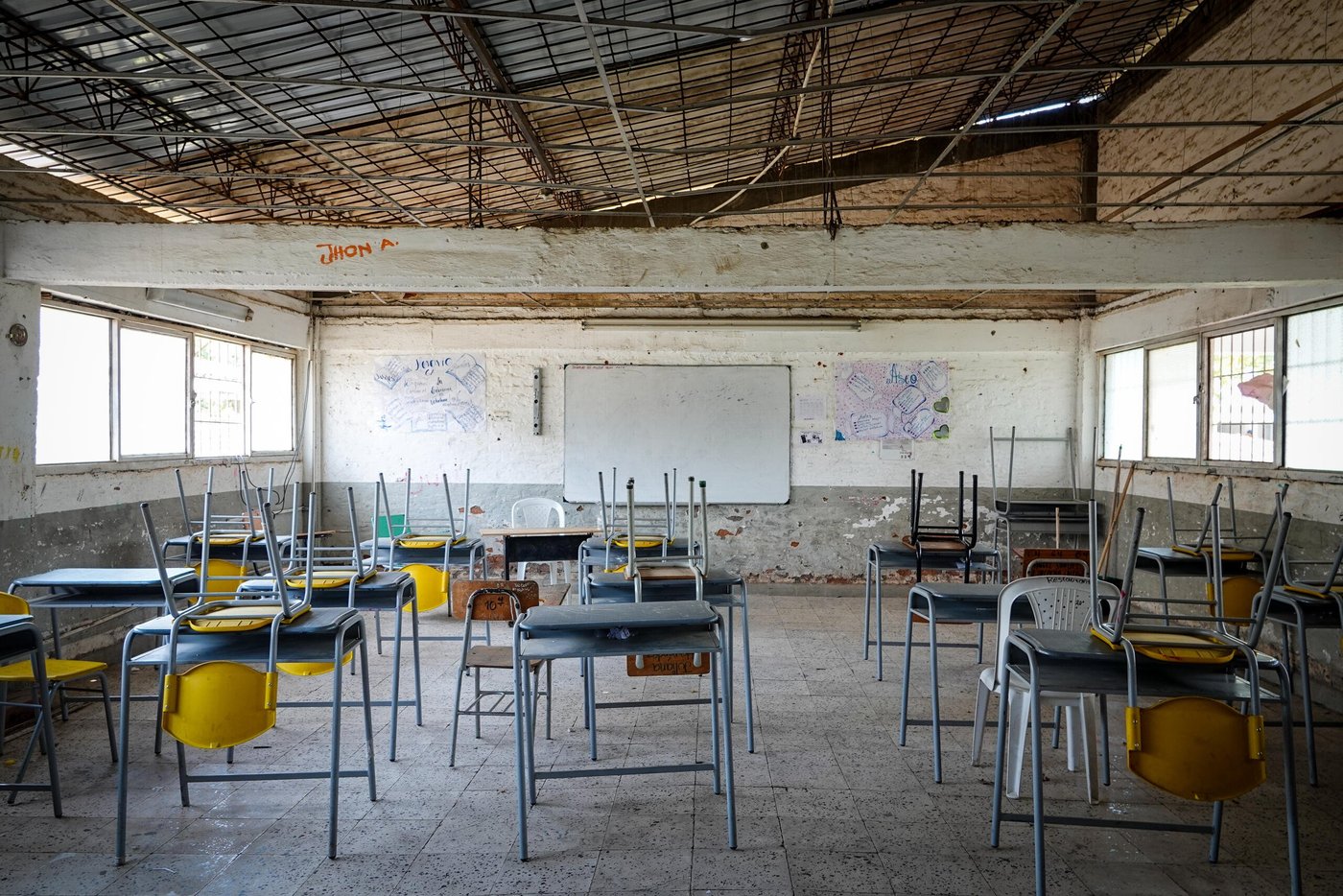From armed fighting and the military use of schools to the presence of landmines and forced recruitment, multiple threats continue to put the lives of children, teachers and other school staff at risk.
“School workers and students affected by the armed conflict are sending an unequivocal message: all parties, including state security forces, must honour their responsibility to respect educational facilities and protect children from harm,” said Giovanni Rizzo, NRC’s country director in Colombia.
According to NRC's mid-year report, nearly 9,500 students, teachers and other school staff were affected by attacks on education between January and June 2025. This represents an increase of more than 65 per cent compared to the same period in 2024. The attacks were reported in the departments of Antioquia, Cauca, Chocó, Norte de Santander, Putumayo, and Valle del Cauca.
“It is unacceptable that armed actors are showing less respect for schools and putting students’ lives at greater risk,” said Rizzo.
The pattern of attacks has shifted, with a higher proportion now occurring within school premises. In 2024, half of attacks on education were reported inside schools, a figure that rose to 61 per cent in the first half of 2025. The remaining 39 per cent of attacks took place on the access routes to schools. This has resulted in a greater number of people being affected by these attacks this year compared to the same period in 2024.
“An armed group occupied our school, and the teachers ordered everyone to evacuate. It was used as a combat base and, when they left, we could see bullet holes in the walls. The teachers had to collect unexploded ordnance and now the community fears that explosive devices are still present at the back of the school grounds," said a parent of a student from a community in the west of the country.
Despite the efforts made, the state’s response to attacks on education remains insufficient, with only 10 per cent of reported attacks receiving a timely official response. To address this, state institutions must immediately increase their resources and actions to prevent schools from being caught in the crossfire; protect children from forced recruitment; carry out humanitarian demining; and improve educational infrastructure to prevent the use or occupation of schools by all parties involved in the conflict.
“All armed actors must listen to the civilian population, especially the children caught in the crossfire in their own classrooms. Children and civilians are innocent victims of a conflict that is not theirs. The attacks on education must end now; it is a call we will not stop making,” said Rizzo.
Notes to editors:
-
According to the data collected by NRC, a total of 9,436 people were affected by 52 attacks on education in the context of armed conflict (8,752 students, 499 teachers, 185 other school staff) during the period January to June 2025 in Antioquia, Cauca, Choco, Norte de Santander, Putumayo, and Valle del Cauca departments, areas of Colombia where NRC has a presence.
-
In 2024, a total of 5,644 people were affected by 59 attacks against education from January to June according to data collected by NRC in areas where the organisation has a presence. Although NRC recorded more attacks on education in 2024 than in 2025, this year has seen a greater number of people affected due to attacks occurring disproportionately in schools compared to the previous year.
-
In the first half of 2024, 49 percent of attacks on education were reported on the routes leading to schools and 51 per cent occurred within the schools themselves. In the first half of 2025, 61 per cent of the violence occurred within the schools themselves, compared to 39 per cent on the access routes.
-
The increase in attacks against education caused by the armed conflict has been evidenced by NRC since 2022. NRC data show that more than 56,508 students, teachers and other school staff have been affected by attacks on education from January 2022 to June 2025 in areas where NRC has a presence.
-
NRC's report (only available in Spanish) is not a comprehensive analysis of all attacks on education in Colombia. The data and information presented in this report only reflect the situation in the areas where NRC is present, and its categories of analysis are limited to those related to the Safe Schools Declaration. The Safe Schools Declaration, launched in 2015 by Norway and Argentina, is an intergovernmental commitment to protect students, teachers and schools from attack and military use during armed conflict. It also emphasizes the importance of continuing education in such situations. When children are out of school, they are more vulnerable to various risks, including recruitment by armed groups, child labour, exploitation, and abuse. Schools act as protective environments in armed conflict scenarios.
For more information or to arrange an interview, please contact:
-
NRC global media hotline: media@nrc.no, +47 905 62 329
-
Ana Milena Ayala Sanchez, advocacy and communication officer in Colombia: ayala@nrc.no, +57 3232746021


